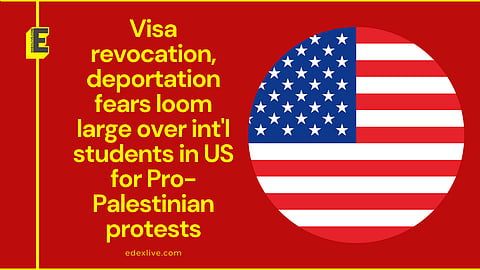

In just one week, an eerie silence has settled over colleges and universities in the United States due to a swift and intensifying crackdown on pro-Palestinian protesters at Columbia University.
International students and faculty, once vocal, are retreating into silence, gripped by fear of arrest, visa revocation, or deportation under the Trump administration’s escalating campaign against campus activism, reported the Associated Press.
Columbia University in focus
The prestigious New York City institution has become ground zero for the administration’s efforts to target foreign students involved in last year’s pro-Palestinian demonstrations.
Federal immigration agents have arrested two individuals, one a student, who participated in the protests, while another student’s visa was revoked, prompting their flight from the US.
On Thursday, March 13, Department of Homeland Security agents searched the on-campus residences of two Columbia students, though no arrests were made.
Nationwide effect
The ripple effects can be perceived far beyond Columbia.
At Louisiana State University, a Bangladeshi student, speaking anonymously to the Associated Press, out of fear for her green card, said she has stopped posting political content online.
A law professor at the University of California (UC) Irvine, also a counsel for the American Association of University Professors, revealed that green card-holding faculty are “terrified” of the repercussions due to their individual beliefs.
She also noted a sharp decline in scholarly discourse, debate, and publishing among international faculty, silencing the voice of academia.
Schools release notes of caution
Columbia’s Graduate School of Journalism captured the mood in a statement signed by its faculty:
“Nobody can protect you, these are dangerous times,” the school’s dean, Jelani Cobb, said in a post on Thursday on Bluesky explaining the comment. “I went on to say that I would do everything in my power to defend our journalists and their right to report but that none of us had the capacity to stop DHS from jeopardizing their safety,” it was stated.
At UC Davis, the Global Affairs Program specified on their website advising international students and scholars that while they enjoy free speech rights, arrests could lead to problems with immigration status.
“While international students and scholars have broad rights to freedom of speech and lawful assembly, please be aware that being arrested or detained by law enforcement may trigger current and/or future immigration consequences,” the school mentioned on its website and added, “Each person should take appropriate care and utilize their best judgment.”
